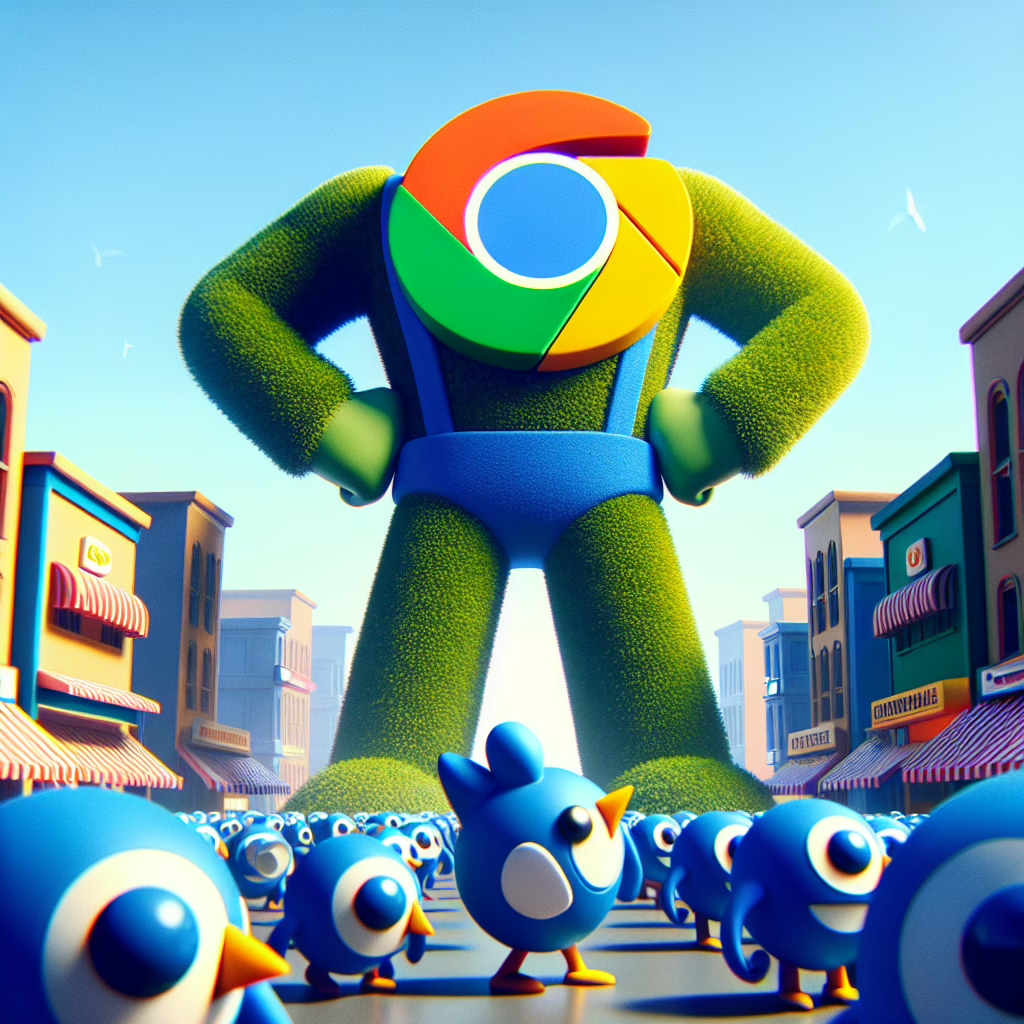In the digital age, where every click counts, the Google search engine monopoly has become a topic that both tech enthusiasts and casual internet users can’t ignore. With the dawn of artificial intelligence (AI) looming on the horizon, some experts predict that Google’s grip on search could tighten even further. In fact, it’s like watching a magician pull an endless stream of rabbits out of a hat—impressive, but also a little concerning!
The AI Effect: A Double-Edged Sword
So, what exactly does AI have to do with Google’s potential monopoly? Well, AI can enhance user experiences significantly. Think about it: smarter algorithms mean more personalized search results, which sounds fantastic! But wait—there’s a catch. As Google refines its algorithms using AI, smaller competitors may find themselves struggling to keep up. Picture a race where one contestant has rocket boosters and everyone else is still figuring out how to tie their shoelaces.
The U.S. Department of Justice (DOJ) is raising eyebrows over this very scenario. They’re concerned that as Google expands its AI capabilities, it might not just dominate search results but also extend its influence over advertising and content distribution. This isn’t just a game of Monopoly where one player ends up with all the properties—this is about how information flows in our society!
Can Competition Survive?
The big question is: Can smaller companies survive in a world dominated by Google? The DOJ thinks it’s worth investigating. With Google’s impressive market share and technological prowess, new entrants might feel like they’re trying to sell lemonade next to a mega smoothie franchise. Sure, your lemonade is refreshing, but when people see the giant neon sign for smoothies, who will they choose?
Even though competition is crucial for innovation and consumer choice, it’s tough when one company controls so much of the market. For example, if Google decides to integrate its AI features into search results that favor its own products or services—who’s going to stop them? It’s like having an unfair referee in a soccer match; you know something isn’t right.
What About Regulation?
Enter the regulators! While we all love a good superhero story, regulatory bodies like the DOJ are stepping into this narrative as the unlikely heroes trying to keep Google in check. They’re investigating whether these advancements in AI represent monopolistic behavior or simply good business practices. Spoiler alert: it’s probably a little bit of both!
Regulations could mean requiring Google to share some of its data or allowing fairer competition for smaller players. Think of it as setting up rules for a friendly neighborhood soccer match instead of letting one team dribble all over everyone else without consequences.
The Consumer Perspective
As consumers, we may feel torn between enjoying the benefits of advanced AI technology and being wary of an expanding monopoly. It’s like having your cake and being told you can only eat one slice! On one hand, personalized searches make finding information easier; on the other hand, it could lead to a lack of diversity in what we see online.
- Personalized search results streamlining information retrieval.
- Potential narrow viewpoints influencing consumer decisions.
- A need for a diverse digital ecosystem for better choices.
Ultimately, we want balance in our digital ecosystem—a place where choices abound rather than being limited to just one option (hint: that option should not always be Google!). We deserve variety in our online experiences just as much as we enjoy selecting from multiple flavors at an ice cream shop.
The Future Outlook
As we look ahead to 2025, it’s clear that the intersection of Google’s search engine monopoly and AI technology will be pivotal for both consumers and competitors alike. Will regulators manage to level the playing field? Or will we continue down this road where one tech giant reigns supreme? Only time will tell!
In conclusion, while advancements in AI promise incredible benefits for users, they also raise essential questions about market dynamics and fair competition. How do you feel about Google’s expanding influence? Are you excited about the future or worried about what it means for competition? Let us know your thoughts!
Thank you to TechRadar for the original insights on this topic. You can read their article here. For more insights into how tech trends impact our lives, check out our other articles on amazing AR glasses and the latest Google Pixel Watch update.

